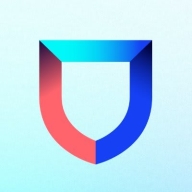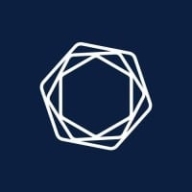


Lacework FortiCNAPP and Tenable Cloud Security are competing in the cloud security space. Lacework FortiCNAPP seems to have an advantage in terms of cost-effectiveness and ease of deployment, while Tenable Cloud Security is better suited for comprehensive threat detection and vulnerability management despite higher costs.
Features: Lacework FortiCNAPP provides valuable security monitoring, compliance features, and anomaly detection. It excels in policy automation, continuous monitoring, and integration with multi-cloud environments. Tenable Cloud Security is known for its advanced vulnerability detection, software composition analysis, and asset management, supporting robust security frameworks and DevOps integrations.
Room for Improvement: Lacework FortiCNAPP could enhance its feature set to address more advanced threat detection capabilities and improve the granularity of its alerts. Additionally, providing more detailed vulnerability analytics and expanding third-party integration options would be beneficial. Tenable Cloud Security might focus on simplifying its deployment process and reducing setup complexity. Improving the user interface for more intuitive navigation and expanding its real-time support services could also be advantageous.
Ease of Deployment and Customer Service: Lacework FortiCNAPP is praised for its straightforward deployment process and accessible customer support. Its documentation is thorough, facilitating seamless data ingestion and system maintenance. In contrast, Tenable Cloud Security may require a more complex setup but offers extensive documentation and comprehensive support to guide users through the process.
Pricing and ROI: Lacework FortiCNAPP offers competitive initial setup costs and a strong ROI through operational savings and user satisfaction. Tenable Cloud Security demands a higher initial investment justified by its rich feature set, delivering substantial ROI in environments requiring intricate security measures. The distinction lies in Lacework's affordability and Tenable's comprehensive security offering.
The detailed information PingSafe gives about how to fix vulnerabilities reduces the time spent on remediation by about 70 to 80 percent.
After implementing SentinelOne, it takes about five to seven minutes.
Cloud Native Security does offer ROI.
When we send an email, they respond quickly and proactively provide solutions.
They took direct responsibility for the system and could solve queries quickly.
Having a reliable team ready and willing to assist with any issues is essential.
Technical support from Fortinet is good; I get feedback and responses quickly.
With Element, if you need a feature, you can discuss it with them, and if implementation is possible, you will have that feature within a month or two, depending on complexity.
I would rate it a 10 out of 10 for scalability.
Scalability is no longer a concern because Cloud Native Security is a fully cloud-based resource.
I would rate the scalability of PingSafe 10 out of 10.
It's a reliable solution that the organization is increasingly adopting for its robust features and security.
We contacted Cloud Native Security, and they addressed it in a day.
The only downtime we had was when switching from V1 to V2 but it was smooth.
In situations where there was a platform issue, they fixed it immediately and provided a complete explanation for the occurrence.
If they can merge Kubernetes Security with other modules related to Kubernetes, that would help us to get more modules in the current subscription.
As organizations move to the cloud, a cloud posture management tool that offers complete cloud visibility becomes crucial for maintaining compliance.
I would also like to see Cloud Native Security offer APIs that allow us to directly build dashboards within the platform.
The vulnerability part is not systematically organized; it is all clumsy in the web UI, and it is not user-friendly.
Adding capabilities for the scanner to automatically pick up changes and add assets automatically would be valuable.
The only complaint I hear in the market is from resellers that Tenable management team in Brazil doesn't play fair with the channel and resellers.
I believe the enterprise version costs around $55 per user per year.
There are some tools that are double the cost of Cloud Native Security.
I recall Cloud Native Security charging a slightly higher premium previously.
This helps visualize potential attack paths and even suggests attack paths a malicious actor might take.
The infrastructure-as-code feature is helpful for discovering open ports in some of the modules.
This tool has been helpful for us. It allows us to search for vulnerabilities and provides evidence directly on the screen.
The machine learning capability in Lacework FortiCNAPP is used for threat detection.
The automatic integration capabilities, particularly with DNS, Azure, and AWS, are extremely valuable.
Perhaps the best functionalities are related to promoting a deeper analysis of the environment where applications are running in terms of creating a double armor of security to block threats that may come in the cloud with Tenable Cloud Security.
The best features Tenable Cloud Security offers in my experience are automatic scanning, frequent scanning, and automatic finding, which I find valuable.
| Product | Market Share (%) |
|---|---|
| SentinelOne Singularity Cloud Security | 4.6% |
| Tenable Cloud Security | 2.9% |
| Lacework FortiCNAPP | 2.7% |
| Other | 89.8% |



| Company Size | Count |
|---|---|
| Small Business | 46 |
| Midsize Enterprise | 20 |
| Large Enterprise | 53 |
| Company Size | Count |
|---|---|
| Small Business | 4 |
| Midsize Enterprise | 4 |
| Large Enterprise | 4 |
| Company Size | Count |
|---|---|
| Small Business | 5 |
| Midsize Enterprise | 2 |
| Large Enterprise | 5 |
SentinelOne Singularity Cloud Security offers a streamlined approach to cloud security with intuitive operation and strong integration capabilities for heightened threat detection and remediation efficiency.
Singularity Cloud Security stands out for its real-time detection and response, effectively minimizing detection and remediation timelines. Its automated remediation integrates smoothly with third-party tools enhancing operational efficiency. The comprehensive console ensures visibility and support for forensic investigations. Seamless platform integration and robust support for innovation are notable advantages. Areas for development include improved search functionality, affordability, better firewall capabilities for remote users, stable agents, comprehensive reporting, and efficient third-party integrations. Clarity in the interface, responsive support, and real-time alerting need enhancement, with a call for more automation and customization. Better scalability and cost-effective integration without compromising capabilities are desired.
What are SentinelOne Singularity Cloud Security's standout features?SentinelOne Singularity Cloud Security is deployed in industries needing robust cloud security posture management, endpoint protection, and threat hunting. Utilized frequently across AWS and Azure, it assists in monitoring, threat detection, and maintaining compliance in diverse environments while providing real-time alerts and recommendations for proactive threat management.
Lacework FortiCNAPP provides robust cloud security, combining vulnerability management and multi-cloud insight with user-friendly controls, machine learning detection, and compliance support.
Lacework FortiCNAPP specializes in cloud security by merging machine learning anomaly detection with agent-based vulnerability management to offer detailed alerts and compliance reports. Its comprehensive approach allows continuous monitoring across AWS and Kubernetes, providing insights from an attacker's perspective. The platform offers automation and seamless Slack integration, facilitating collaborative and efficient cloud security management. Users value its ability to handle multi-cloud environments and scan IAC scripts, configurations, and compute nodes across AWS and GCP.
What are the key features?Organizations across sectors leverage Lacework FortiCNAPP for cloud security, focusing on compliance, security posture, and vulnerability management. It is widely used for monitoring AWS and Kubernetes environments, scanning IAC scripts, configurations, and securing compute nodes. It supports multi-cloud security posture management and log ingestion, enabling companies to maintain strong cloud infrastructures without dedicated security layers.
Tenable Cloud Security is a comprehensive solution designed to help organizations secure their cloud environments across various platforms, including AWS, Azure, and Google Cloud. It offers continuous visibility, compliance management, and threat detection to ensure that cloud infrastructure and applications are protected from vulnerabilities and misconfigurations.
Tenable Cloud Security exemplifies a comprehensive Cloud-Native Application Protection Platform (CNAPP) by providing a unified solution that covers the entire cloud security lifecycle, from development to runtime. This platform is designed to address vulnerabilities, misconfigurations, threats, and compliance risks across multi-cloud environments, making it an essential tool for organizations adopting cloud-native architectures. In practice, Tenable Cloud Security integrates security into the development process through its shift-left approach, particularly with Infrastructure as Code (IaC) security. This ensures that security measures are embedded early in the development lifecycle, allowing teams to identify and mitigate vulnerabilities before they reach production. Once in production, the platform continues to provide real-time visibility into cloud environments, enabling continuous monitoring and proactive threat detection.
The solution's comprehensive protection spans various aspects of cloud security, including the identification and remediation of misconfigurations, automated compliance management, and advanced threat intelligence. By automating these processes, Tenable Cloud Security reduces the manual effort required to manage cloud security, freeing up resources for more strategic initiatives.
What are the key features of Tenable Cloud Security?
What are the benefits of using Tenable Cloud Security?
Tenable Cloud Security is particularly valuable in industries with stringent regulatory requirements, such as finance, healthcare, and retail. For example, in the financial sector, it helps organizations ensure compliance with regulations like PCI-DSS while safeguarding sensitive data across cloud environments.
In summary, Tenable Cloud Security is a robust CNAPP solution that integrates security throughout the cloud lifecycle, providing comprehensive protection and operational efficiency for cloud-native environments.
We monitor all Cloud-Native Application Protection Platforms (CNAPP) reviews to prevent fraudulent reviews and keep review quality high. We do not post reviews by company employees or direct competitors. We validate each review for authenticity via cross-reference with LinkedIn, and personal follow-up with the reviewer when necessary.